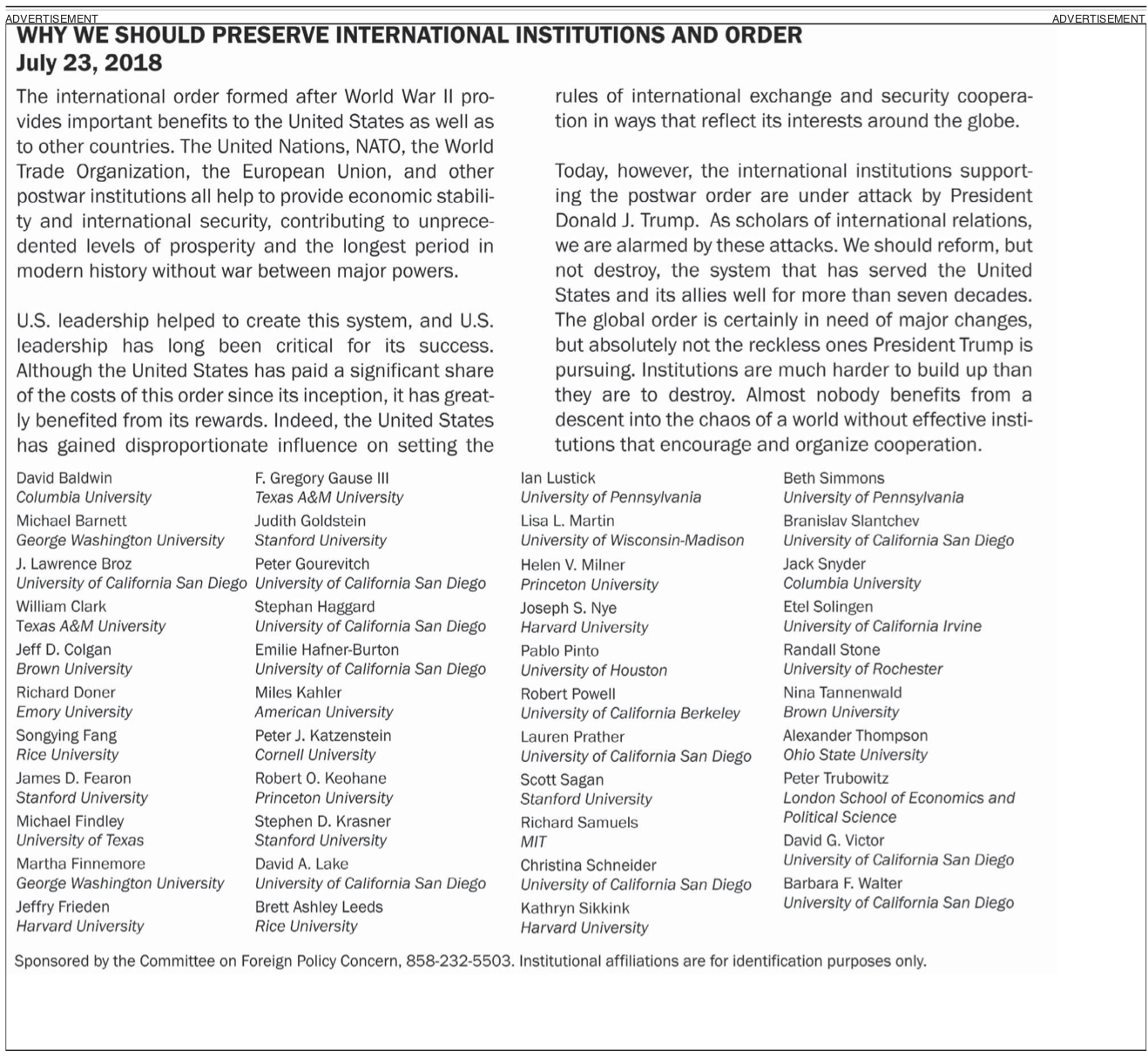
The international order formed after World War II provides important benefits to the United States as well as other countries. The United Nations, NATO, the World Trade Organization, the European Union, and other postwar institutions all help to provide economic stability and international security, contributing to unprecedented levels of prosperity and the longest period in modern history without war between major powers.
U.S. leadership helped to create this system, and U.S. leadership has long been critical for its success. Although the United States has paid a significant share of the costs of this order since its inception, it has greatly benefited from its rewards. Indeed, the United States has gained disproportionate influence on setting the rules of international exchange and security cooperation in ways that reflect its interests around the globe.
Today, however, the international institutions supporting the postwar order are under attack by President Donald J. Trump. As scholars of international relations, we are alarmed by these attacks. We should reform, but not destroy the system that has served the United States and its allies well for more than seven decades. The global order is certainly in need of major changes, but absolutely not the reckless ones President Trump is pursuing. Institutions are much harder to build up than they are to destroy. Almost nobody benefits from a descent into the chaos of a world without effective institutions that encourage and organize cooperation.
David Baldwin, Columbia University
Michael Barnett, Georgetown University
J. Lawrence Broz, University of California, San Diego
William Clark, Texas A&M University
Jeff D. Colgan, Brown University
Songying Fan, Rice University
James D. Fearon, Stanford University
Michael Findley, University of Texas
Martha Finnemore, George Washington University
Jeffry Frieden, Harvard University
F. Gregory Gause III, Texas A&M University
Judith Goldstein, Stanford University
Peter Gourevitch, University of California, San Diego
Stephan Haggard, University of California, San Diego
Emilie Hafner-Burton, University of California, San Diego
Robert Jervis, Columbia University
Miles Kahler, American University
Peter J. Katzenstein, Cornell University
Robert O. Keohane, Princeton University
David A. Lake, University of California, San Diego
Brett Ashley Leeds, Rice University
Ian Lustick, University of Pennsylvania
Lisa L. Martin, University of Wisconsin-Madison
Helen V. Milner, Princeton University
Joseph S. Nye, Harvard University
Pablo Pinto, University of Houston
Robert Powell, University of California, Berkeley
Lauren Prather, University of California, San Diego
Scott Sagan, Stanford University
Richard Samuels, MIT
Christina Schneider, University of California, San Diego
Kathryn Sikkink, Harvard University
Beth Simmons, University of Pennsylvania
Branislav Slantchev, University of California, San Diego
Jack Snyder, Columbia University
Etel Solingen, University of California, Irvine
Randall Stone, University of Rochester
Nina Tannenwald, Brown University
Alexander Thompson, Ohio State University
Peter Trubowitz, London School of Economics and Political Science
David G. Victor, University of California, San Diego
Barbara F. Walter, University of California, San Diego
Sponsored by the Committee on Foreign Policy Concern, 858-232-5503. Institutional affiliations are for identification purposes only.

